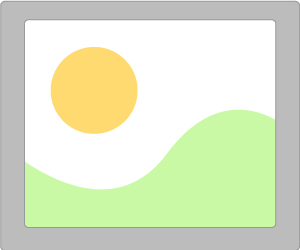Ujumbe: 41
Lugha: English
Miland (Wasifu wa mtumiaji) 19 Mei 2016 2:50:27 alasiri
Alkanadi:So Kellerman made a mistake. I didn't see that one coming...Neither did Kellerman, quite possibly. It would be a mistake from our present point of view. His is a very old textbook from the earliest days of the movement, when ci was still current. The other example you found was a quote from a conversation, and so might reflect a looser use of the language.
It is now safe to say: if it doesn't have a name ending -o, no matter what it is, use al to indicate movement towards it, not the accusative.
Alkanadi (Wasifu wa mtumiaji) 19 Mei 2016 3:10:44 alasiri
Miland:Thanks. I will go with that. That makes it easy.Alkanadi:So Kellerman made a mistake. I didn't see that one coming...It is now safe to say: if it doesn't have a name ending -o, no matter what it is, use al to indicate movement towards it, not the accusative.
Just one small monkey wrench to throw into the machine:
erinja:A restaurant is a place.restoracion <--- A place according to Erinja.
ĝardenon <--- Not a place according to Miland.
This is why I ask these questions. Everyone thinks their own answer is self-evident. One person says, obviously a garden is a place. Another person will say the opposite. Then the one asking the question is seen as a trouble maker when they are innocently trying to iron out some inconsistencies. You can't win.

Miland (Wasifu wa mtumiaji) 19 Mei 2016 3:37:32 alasiri
Alkanadi:ĝardenon <--- Not a place according to Miland.That is not accurate. I said that a garden does not count as a named place if it does not have a name (2016-05-19 8:59:04). Even then it wouldn't be eligible for the accusative if the name did not end in -o. Even in that case I would probably prefer to use al to indicate movement towards it, since using a name to refer to a location is not something we usually do except for dwelt areas like towns, or (just possibly) a very famous building or estate.
thyrolf (Wasifu wa mtumiaji) 19 Mei 2016 4:40:46 alasiri
it's an example of accusativ! i try to translate (not sure i'm able to do it correctly): they locked at each other, deepening in their hearts, started to move, to turn, turn around, dance - danced into their happiness.
Vestitor (Wasifu wa mtumiaji) 19 Mei 2016 5:05:33 alasiri
thyrolf:Ili sin ame rigardis, kore enprofundiĝis, komencis sin movi, turneti, turni, danci - dancadis feliĉen.English or English translations alongside Esperanto are required here.
lagtendisto (Wasifu wa mtumiaji) 19 Mei 2016 5:28:53 alasiri
dbob:Thanks, dbob. I really missed that. Thanks for that hint. Short time I was wondering about combination of 'al tien'. But then I thought, okay Evildela, obviously he is KER C1 level speaker, so it could be some kind of emphasis to use 'al tien' ('al al' ). I assume that I confused it with Lidepla -bu- verb repetition particle and made it bias for Esperanto, too. In result, I didn't listen with full mental energy. I have to improve that. Lesson learntspreecamper:Example of 'al'-movement: 'Do ni povas iri al tien.'He didn't say "al tien". He said: "Do ni povas iri aŭ tien, aŭ tien."
"Al" by itself already shows movement and you don't use the accusative N after it.
If I say "mi iros al tien" that would mean "mi iros al al tie" ---> Rolvortetoj, kiuj mem montras direkton.

Furthermore, in my opinion that 'aux' also sounds little bit like English 'ehm'.
Alkanadi (Wasifu wa mtumiaji) 22 Mei 2016 7:02:58 asubuhi
Li, doktoro, tiel vestite venis restoracion...
erinja:A restaurant is a place.Li iris ĝardenon.
Miland:Alkanadi:Is this a mistake?Yes...
Li iris ĝardenon.
Miland (Wasifu wa mtumiaji) 25 Mei 2016 8:52:31 asubuhi
Kirilo81 (Wasifu wa mtumiaji) 25 Mei 2016 9:22:11 asubuhi
If there is any language change going on with the accusative of direction, then it is the loss of the bare accusative in favor of the directional adverb: Mi iros urbon -> Mi iros urben (although they don't mean the same, originally).
I don't see why Mi iras ĝardenon should be wrong, a garden is a place, too (although not the most typical one and not a proper name, so the expression would be stylistically marked).
Alkanadi (Wasifu wa mtumiaji) 25 Mei 2016 9:50:39 asubuhi
Kirilo81:I don't see why Mi iras ĝardenon should be wrong...Other people will disagree with you.
The problem is this. If ĝardenon is a place then anything can be a place by extension. A garden is a place where you grow food. A table is a place where you eat.
How do we define a place?
Each side holds their own position as self-evident and obvious. Too bad nobody can explain this discrepancy. I must be the first one in history to discover it.



